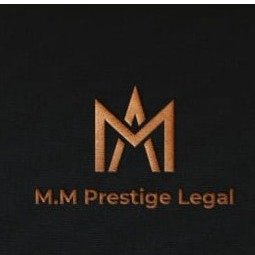Best Juvenile Law Lawyers in Pretoria
Share your needs with us, get contacted by law firms.
Free. Takes 2 min.
List of the best lawyers in Pretoria, South Africa
About Juvenile Law in Pretoria, South Africa
Juvenile Law in Pretoria, South Africa, primarily addresses legal matters involving minors, typically individuals under the age of 18. The legal framework is designed to ensure the protection, welfare, and rehabilitation of young people who find themselves in conflict with the law or in need of care and protection. The legislation balances accountability with the understanding that minors require a different approach than adults due to their developmental stages. Pretoria, like the rest of South Africa, adheres to the principles outlined in the Children’s Act and the Child Justice Act, which guide how minors should be treated in various legal circumstances.
Why You May Need a Lawyer
There are several situations where you might need a lawyer specializing in Juvenile Law:
- If your child has been accused of committing a crime.
- For guidance in cases where a child has been removed from home and placed under state care.
- To understand parental rights and responsibilities concerning child custody or guardianship issues.
- If you are involved in child abuse or neglect investigations.
- For legal guidance regarding school-related disciplinary actions.
Legal representation ensures that the rights of minors are protected, and that they have fair access to justice.
Local Laws Overview
In Pretoria, the key aspects of Juvenile Law are governed under two pivotal acts:
The Child Justice Act: This act establishes a separate criminal justice system for minors. It emphasizes rehabilitation over punishment by encouraging diversion programs and alternative sentencing.
The Children’s Act: This act focuses on the care and protection of children. It provides guidelines on adoption, custody, child protective services, and outlines the constitutional rights of minors.
These acts are crucial in shaping how minors are treated within the legal system, emphasizing their unique needs and potential for rehabilitation.
Frequently Asked Questions
What age group does Juvenile Law apply to in South Africa?
Juvenile Law applies to minors, generally those under the age of 18.
What happens if my child is arrested?
If a minor is arrested, the police must inform the parent or guardian immediately and bring the child before a preliminary inquiry to decide on suitable interventions and steps.
Can minors be tried as adults?
Minors under 18 are typically tried under the Child Justice System, but in severe cases, older teenagers might be transferred to an adult court.
What are diversion programs?
Diversion programs are alternatives to formal criminal charges, offering rehab and skills development aimed to redirect minors from the criminal justice system.
How is custody determined for minors?
Custody is determined based on the best interests of the child, considering factors like the emotional bonds and the parents’ ability to provide care.
What rights do minors have when involved in legal proceedings?
Minors have the right to legal representation, to be heard in proceedings affecting them, and to have their privacy respected.
What support is available for minors at risk?
There are government bodies and NGOs that provide various protection services, including counseling, legal aid, and safe shelter facilities.
Who can report child abuse or neglect?
Anyone who suspects child abuse or neglect should report it to the relevant authorities, as there is a mandatory reporting law in place.
Are there any legal avenues for minors seeking independence?
Minors can apply for partial emancipation under certain conditions, like marriage or court order allowing independent management of their affairs.
Can parents lose custody of their children?
Yes, if parents are found unfit or in cases of abuse or neglect, custody may be revised in the best interest of the child.
Additional Resources
For further assistance and information about Juvenile Law in Pretoria, consider reaching out to the following resources:
Legal Aid South Africa: Provides legal services to those who cannot afford them.
The Department of Social Development: Offers support services and programs for minors and families.
The Children's Court in Pretoria: Handles issues pertaining to the care and protection of children.
NGOs like Childline South Africa: Offer support and counselling services for children and families in distress.
Next Steps
If you need legal assistance in Juvenile Law, consider taking the following steps:
- Consult with a qualified lawyer specializing in Juvenile Law to understand your legal rights and options.
- Gather all necessary documentation related to the case, such as police reports, court documents, or correspondence from social services.
- Contact your local legal aid office to explore if you qualify for free or subsidized legal services.
- Attend any scheduled legal proceedings or meetings with your lawyer and ensure open communication with your legal representative.
Addressing juvenile legal issues promptly and with qualified legal help can significantly impact the outcomes positively for the minor involved.
Lawzana helps you find the best lawyers and law firms in Pretoria through a curated and pre-screened list of qualified legal professionals. Our platform offers rankings and detailed profiles of attorneys and law firms, allowing you to compare based on practice areas, including Juvenile Law, experience, and client feedback.
Each profile includes a description of the firm's areas of practice, client reviews, team members and partners, year of establishment, spoken languages, office locations, contact information, social media presence, and any published articles or resources. Most firms on our platform speak English and are experienced in both local and international legal matters.
Get a quote from top-rated law firms in Pretoria, South Africa — quickly, securely, and without unnecessary hassle.
Disclaimer:
The information provided on this page is for general informational purposes only and does not constitute legal advice. While we strive to ensure the accuracy and relevance of the content, legal information may change over time, and interpretations of the law can vary. You should always consult with a qualified legal professional for advice specific to your situation.
We disclaim all liability for actions taken or not taken based on the content of this page. If you believe any information is incorrect or outdated, please contact us, and we will review and update it where appropriate.
















